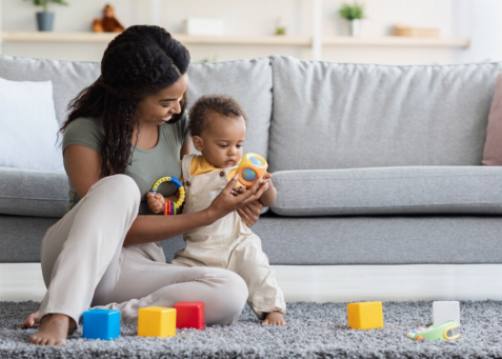Sleep Strategies for Babies with Ear Infections: A Parent's Guide
22 October 2025 by Jak B.As a new parent, one of the most challenging aspects of caring for your baby is ensuring they get enough restful sleep, especially when they are experiencing health issues such as ear infections. In this guide, we will explore the impact of ear infections on a baby's sleep, how to recognize the symptoms, insights from pediatricians on treatment, soothing techniques, creating a comfortable sleep environment, sleep training methods, and maintaining healthy sleep habits post-infection. With the information provided, you will be better equipped to help your baby navigate through the challenges of sleep during an ear infection.

Understanding Ear Infections in Babies and Their Impact on Sleep
Ear infections are a common occurrence in babies and can have a significant impact on their sleep patterns. These infections typically occur in the middle ear and can cause discomfort and pain, making it difficult for babies to fall and stay asleep. The pressure and fluid buildup in the ear can also lead to irritability and fussiness, further disrupting their sleep. It's important for parents to understand the symptoms of an ear infection and how it can affect their baby's ability to sleep peacefully.Recognizing the Symptoms of an Ear Infection in Your Baby
Ear infections in babies can be difficult to recognize, as they may not be able to communicate their discomfort. However, there are several symptoms to look out for that may indicate an ear infection. These can include irritability, difficulty sleeping, tugging or pulling at the ear, fever, drainage from the ear, loss of appetite, and excessive crying. If you notice any of these symptoms in your baby, it is important to consult with a pediatrician to determine if they have an ear infection.Pediatrician Insights: Treating Ear Infections in Infants
When it comes to treating ear infections in infants, it's important to seek guidance from a pediatrician. The pediatrician will conduct a thorough examination of the baby's ear to determine the severity of the infection and the appropriate course of treatment. In many cases, the pediatrician may prescribe antibiotics to help clear the infection. It's important for parents to follow the pediatrician's instructions carefully and administer the medication as directed. In some cases, the pediatrician may also recommend pain relievers to help alleviate the discomfort associated with the ear infection. Additionally, the pediatrician may provide guidance on how to soothe the baby and provide comfort during this challenging time. It's essential for parents to communicate openly with the pediatrician and seek their advice if they have any concerns or questions about their baby's ear infection.Soothing Techniques for a Baby Suffering from an Ear Infection
When a baby is suffering from an ear infection, it can be a stressful and painful experience for both the baby and the parents. However, there are several soothing techniques that can help provide some relief for the baby. One of the most effective soothing techniques is to hold and cuddle the baby in an upright position, as this can help to alleviate some of the pressure and discomfort in the ear. Additionally, using a warm compress on the affected ear can also provide some comfort and relief. It is important to consult with a pediatrician to determine the most appropriate and safe methods for soothing a baby with an ear infection.Creating a Comfortable Sleep Environment for Your Baby with an Ear Infection
Creating a comfortable sleep environment for your baby with an ear infection is crucial for helping them get the rest they need to recover. Here are some tips for creating a soothing sleep environment:1. Elevate the head of the bed: Propping up the head of your baby's mattress slightly can help to alleviate pressure and discomfort in their ears.
2. Use a cool mist humidifier: Adding moisture to the air can help to soothe your baby's irritated nasal passages and make it easier for them to breathe.
3. Keep the room at a comfortable temperature: Ensure that the room is not too hot or too cold, as extreme temperatures can make it difficult for your baby to sleep comfortably.
4. Provide comfort items: Offering your baby their favorite stuffed animal or blanket can provide them with a sense of security and comfort as they try to sleep.
5. Minimize noise and light: Creating a quiet and dark environment can help your baby to get the rest they need without unnecessary disruptions. By taking these steps, you can help to create a comfortable sleep environment for your baby with an ear infection, allowing them to rest and recover as quickly as possible.